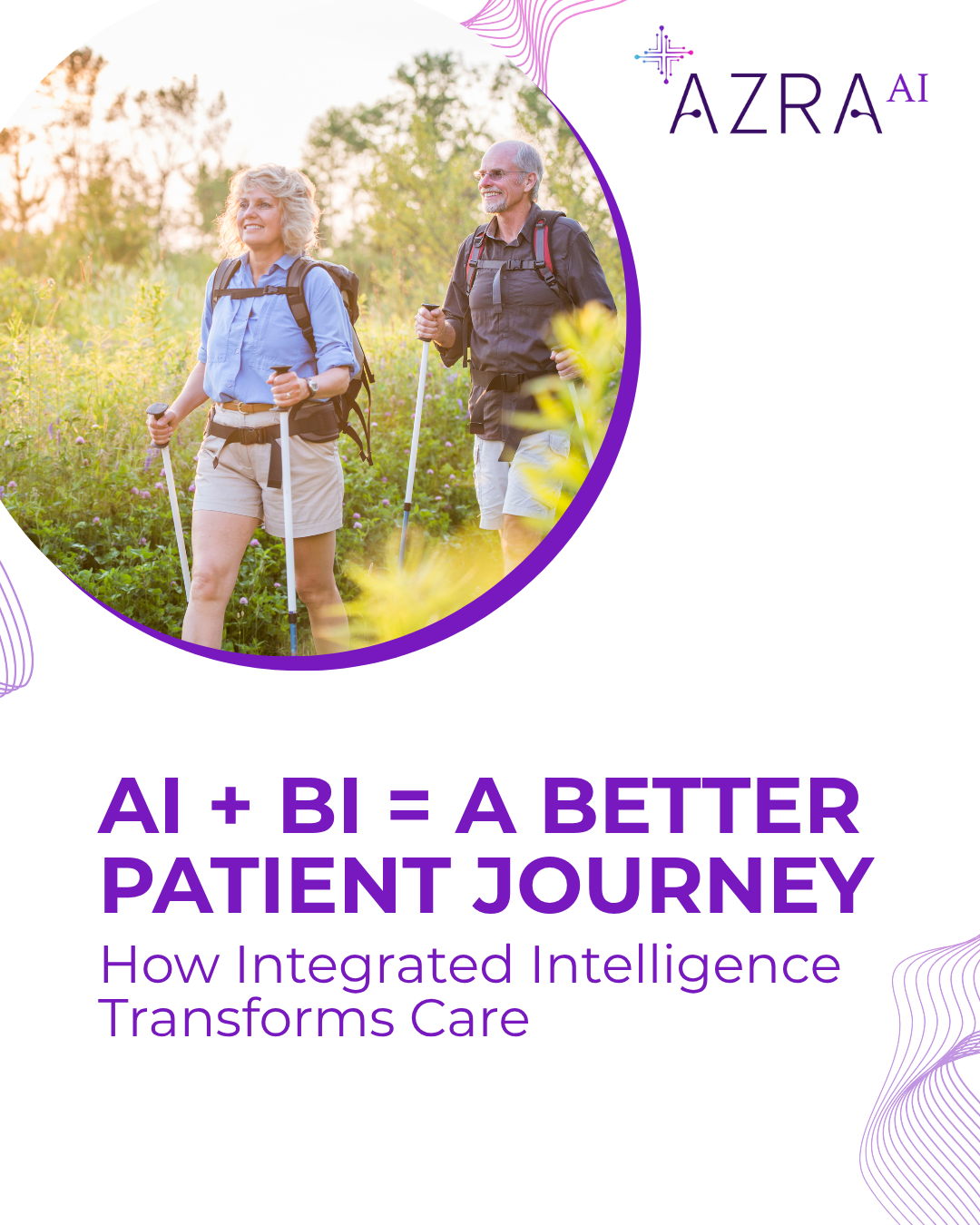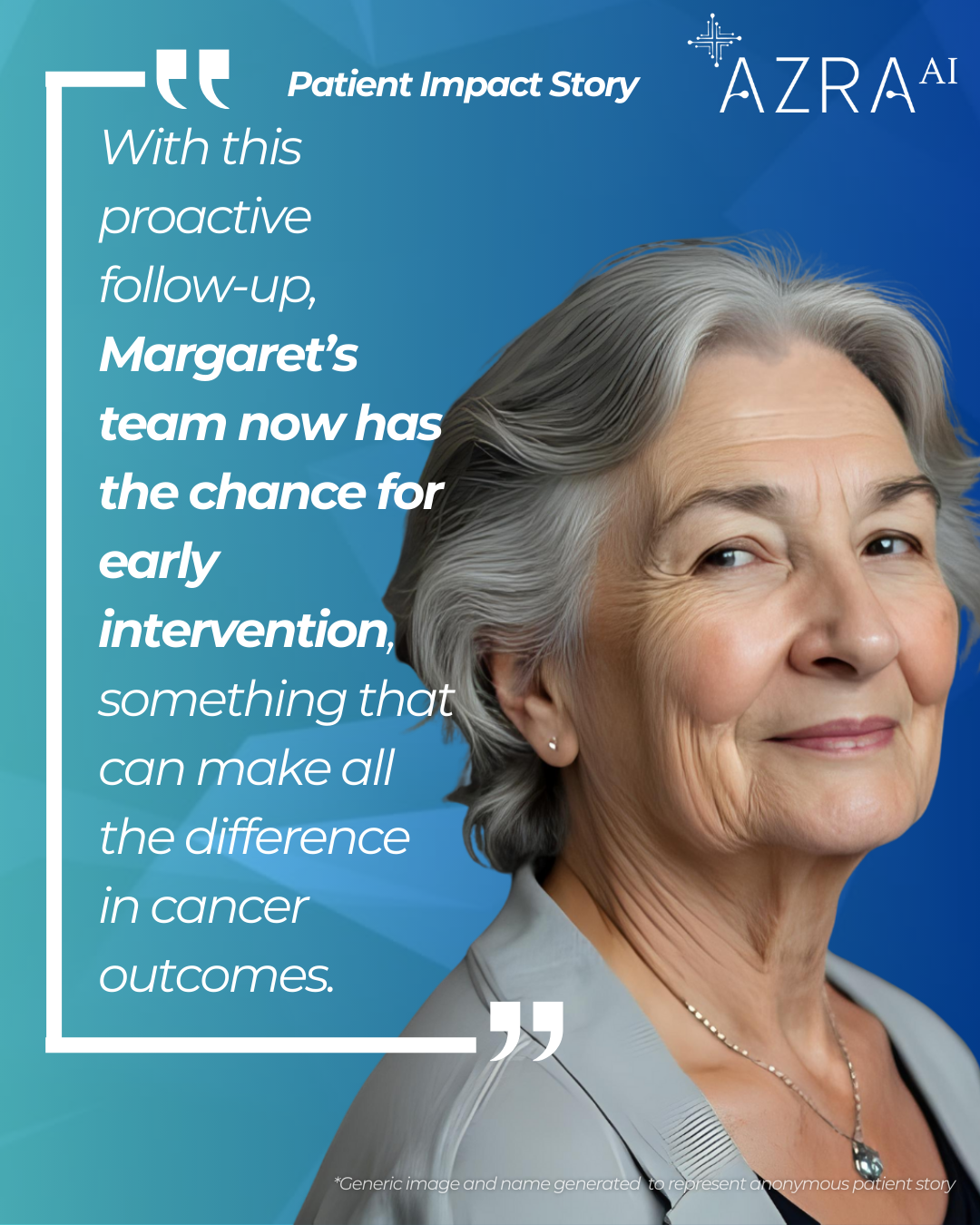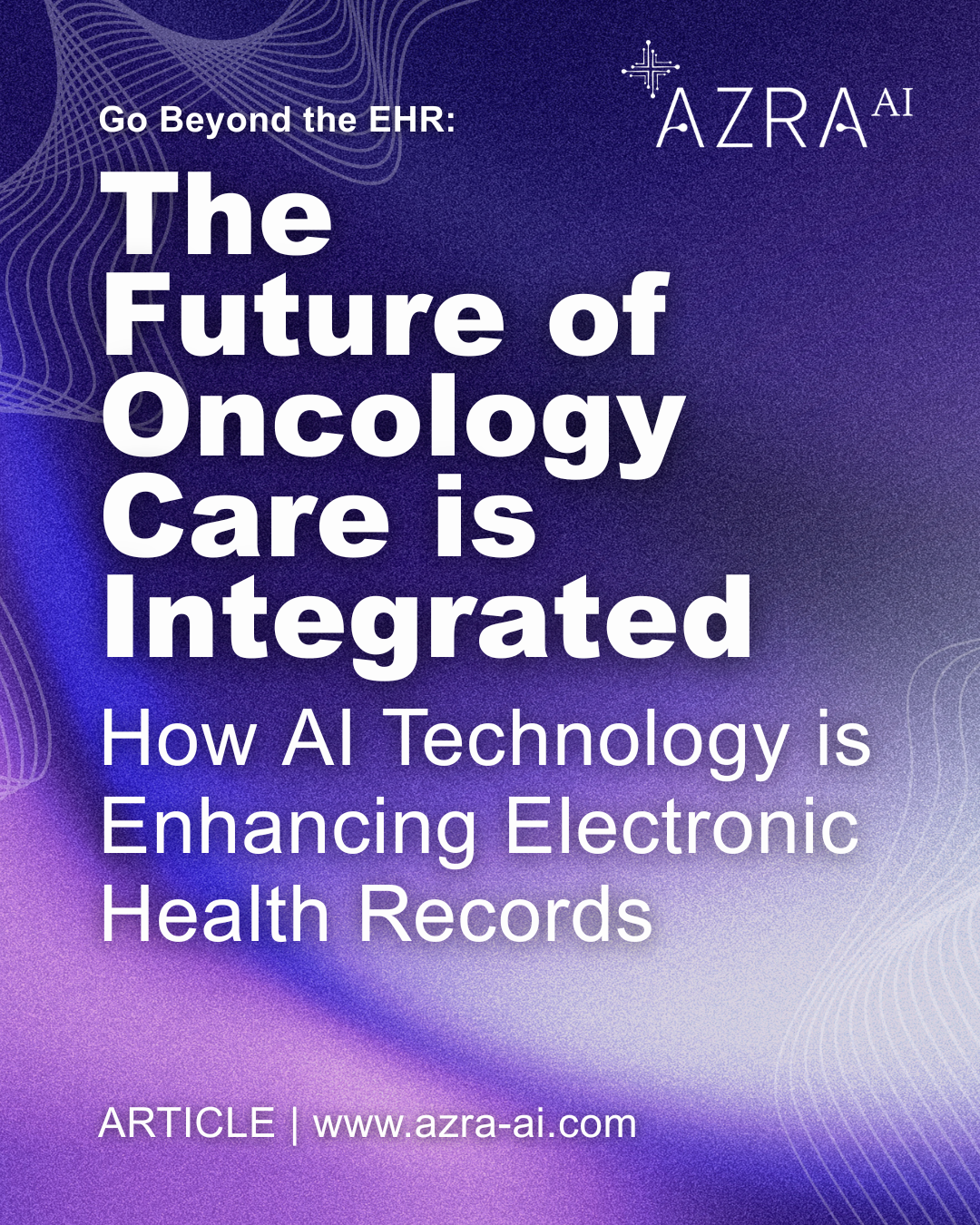As demands on oncology programs intensify, fueled by rising patient volumes, workforce shortages, and the need for more personalized care, health systems are seeking smarter, more scalable ways to improve outcomes. At the intersection of artificial intelligence (AI) and business intelligence (BI), we’re witnessing a powerful opportunity: the ability to automate manual processes, uncover insights in real time, and guide patients more swiftly to the care they need.
The Association of Community Cancer Centers (ACCC) recently spotlighted this transformative potential in their 2025 Trending Now in Cancer Care: Part 1 report. In the article “Harnessing AI Across the Continuum of Cancer Care,” Nicole Centers, Executive Director of Oncology Service Line, Nurse Leader, at Wellstar Health System, offers a compelling look at how AI and BI, when implemented together, can fuel a more efficient, equitable, and patient-centered cancer journey.
Automation Meets Insight, Impact Follows
“It can help us understand patient trends,” said Centers in the ACCC report. “But when it comes to real-world implementation, you can’t boil the ocean. You have to do it one drop at a time.”
For health systems like Wellstar, this meant consolidating fragmented point solutions into a few powerful, end-to-end platforms. By automating labor-intensive workflows, such as cancer registry abstraction, navigation and care coordination, and tumor board preparation, AI gave their teams back time to focus on high-value patient interactions.
In tandem, BI provided visibility into critical metrics like time to treatment, patient throughput, and staff productivity. This pairing of automation with data-driven decision-making laid the foundation for both operational efficiency and clinical excellence.
AI in Action: Real-Time Insights, Faster Treatment
Transformer-based AI models, like those deployed by Azra AI, can scan unstructured data in radiology and pathology reports in real-time, identifying:
- Confirmed cancer diagnoses
- Suspicious incidental findings
- High-risk screenings
This real-time triage enables navigators and registry teams to act quickly, shortening time to treatment and ensuring no patient falls through the cracks. As Centers noted in the ACCC report, this AI-driven approach contributed to:
- Increased cancer patient identification
- Improved patient retention
- Enhanced health equity
- Reduced dependency on additional FTEs
- Higher net patient revenue
What makes this even more impactful is the way these insights are surfaced to the care team, not as abstract data points, but as actionable tasks in a centralized, prioritized queue. When paired with BI tools that monitor progress across the continuum of care, it becomes a closed-loop system for continuous improvement.
Building Smart, Sustainable Cancer Programs
As outlined in the ACCC session facilitated by experts including Azra AI’s Brook Blackmore, the success of AI and BI integration depends on more than just the tools themselves. It depends on a framework rooted in strategic alignment, stakeholder collaboration, and iterative implementation.
“Start somewhere, right, and then go from there,” Blackmore advised. “The more you can solve with one partner in this space, the better.”
Health systems must be intentional: identifying high-burden processes, aligning with IT and executive leadership, and ensuring robust training for staff. The goal is not to replace people, but to empower them, giving clinical teams the support they need to deliver timely, compassionate, and effective care.
Technology That Learns With You
One reason Wellstar chose Azra AI, Centers shared, was the flexibility and partnership-driven approach. Rather than offering a static “accuracy rate,” Azra asked, “What’s your tolerance?”—a question that sparked a collaborative process of fine-tuning the technology to Wellstar’s specific workflows and preferences.
This adaptability is key. AI and BI aren’t one-size-fits-all solutions. They should grow with your organization, reflect your standards, and support your team’s success.
A Clear Path Forward
As ACCC’s report makes clear, the digital transformation of cancer care is no longer optional, it’s imperative. But that transformation doesn’t have to be overwhelming. By combining the strengths of AI and BI, health systems can take incremental, strategic steps that pay real dividends for patients and providers alike.
At Azra AI, we believe the future of oncology is not just intelligent, it’s compassionate, collaborative, and deeply human. AI helps us find the patients; BI helps us understand the impact. Together, they light the way forward.
Ready to see how AI and BI can transform your oncology program?
Schedule a demo with Azra AI today.


.png)

